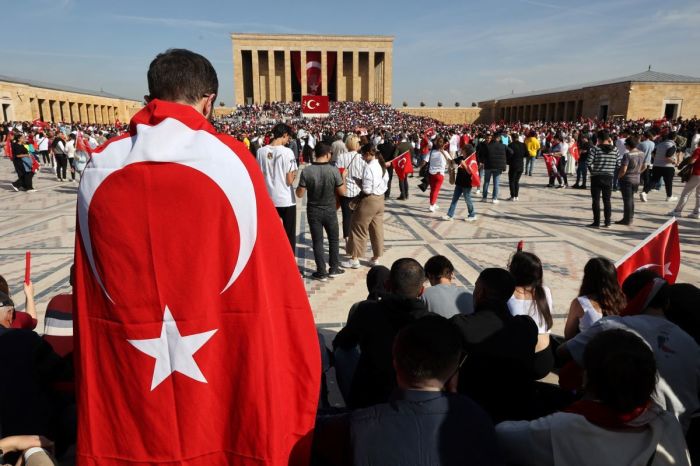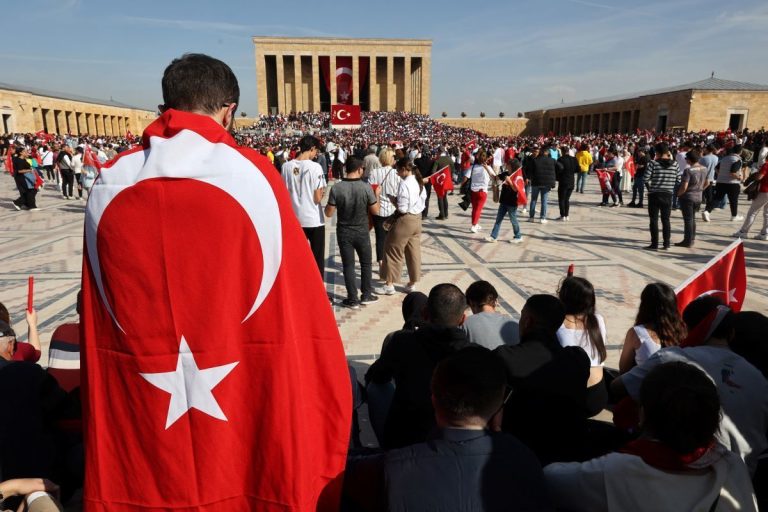
Turkey’s Constitutional Court has upheld the government’s decision to expel nine foreign Christians for alleged “missionary activities,” calling them a risk to national security.
The tribunal governed that this designation, under the controversial immigration code “N-82”, does not violate the rights of foreigners despite their legal resident status in the country. The majority cited the government’s “framework of broad discretion in immigration and border control.”
“In fact, the applicants do not complain of having encountered any hindrance or discriminatory treatment in the exercise of their religious beliefs while living in Turkey,” the decision states. “In addition, it should also be taken into consideration that the candidates Helmut Frank and Matthew Vern Black, for whom the restriction code N-82 was applied, left Turkey voluntarily, while the candidates Amanda Jolyn Krause and Jeremy Lauren Lambert are still in Turkey.”
The ruling marks an important moment in Turkey’s judicial history, being the first joint ruling on multiple cases related to the N-82 code, according to legal group ADF International.
In a statement, the religious freedom legal organization said the court has historically ruled unanimously against foreign Christians in similar cases. But this latest decision showed a division between the judges, revealing dissenting opinions.
The President of the Constitutional Court, Judge Zühtü Arslan, presented a dissenting opinion. He submitted that there was no evidence to suggest that the activities of the appellants threatened public order or security.
“No concrete justification has been provided in the administrative or judicial proceedings in the concrete case to suggest that the activities of the applicants constitute a threat to public order or security,” Arslan said. “Conversely, it is impossible to consider categorically and abstractly the “missionary” activities directed against the applicants as a threat to public order or security.”
Arslan refuted the majority’s assertion that “it is clear that there was no interference with the applicants’ freedom of religion.”
“Essentially, it appears from the statements made both in the “Events and Facts” section of the decision…and under the heading “Plaintiffs’ Allegations and Ministerial Opinion”…that Restriction Code N-82 was applied to candidates because of their missionary activities,” Arslan wrote. “It is inexplicable that this constitutes an interference with the applicants’ freedom of religion.”
Since 2018, around 185 foreign Protestant ministers have been expelled or barred from re-entering Turkey, often without clear justification or access to intelligence reports used against them, according to ADF International.
“The government’s discriminatory targeting of Christian clerics in Turkey, all of whom have lived peacefully in Turkey for many years, constitutes a blatant violation of the European Convention on Human Rights and the International Covenants to which Turkey is a party,” he said. Kelsey said. Zorzi, Director of Advocacy for Global Religious Freedom at ADF International.
She said the country is making systemic efforts to suppress Christian beliefs, noting an increase each year in the number of foreign Christians considered threats to national security.
The affected people, part of a larger group of more than 30 foreign Christians with the code N-82, are engaged in religious works throughout Turkey. This judgment follows several individual cases brought before the Constitutional Court, it is the first collective judgment rendered by the General Assembly of the Court.
Orhan Kemal Cengiz, one of the lawyers representing the petitioners, pointed out the contradictions in the majority’s decision and the lack of evidence supporting the expulsion.
“The Court’s opinion, as described by the dissenting justices, is full of contradictions. Despite clear evidence that these foreigners were deported because of their alleged missionary activities, the majority of the Court found no violation of religious freedom,” Cengiz noted.
Can Kurtulan, another lawyer, discussed the implications for religious freedom in Türkiye.
“With this decision, the prevailing local jurisprudence that ‘missionary activities are within freedom of religion and thought but may be restricted within legal limits’ has been effectively overturned,” he said.
The decision also highlights a worrying trend in Turkey, where nationalism and Islamization pose growing challenges to religious minorities, particularly the Christian community, which numbers around 170,000 people out of a majority Muslim population of 83 million, ADF said International.
Turkey is party to the Lausanne Peace Treaty, which recognizes Jews, Greek Orthodox and Armenians, but not Protestants.



